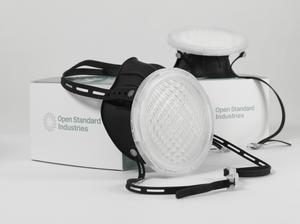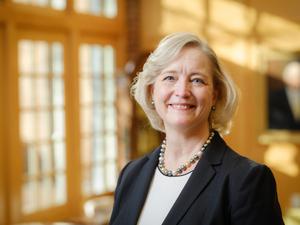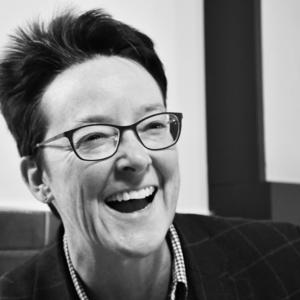
Flexible and low-cost electronics are now closer to becoming commonplace thanks to research conducted by Wake Forest University scientists.
Research from Oana Jurchescu, professor of physics at Wake Forest University, and her graduate student Hamna Iqbal have led to a method to better pinpoint and eliminate sources of instability in the material and devices used to create flexible electronics.
“In this work, we introduced a strategy that provides a reliable tool for identifying with high accuracy the environmental and operational device degradation pathways and subsequently eliminating the main sources of instabilities to achieve stable devices,” Iqbal said, who recently received her PhD from WFU.
Glass has been the go-to material used for electronic devices such as mobile phones, television and computers. It can sustain the high temperatures necessary to build these kinds of devices.
But with the research Jurchescu and Iqbal are working on, more flexible and cost-effective products such as plastics can be used. The materials they are working on can be applied to plastics, creating a foldable smartphone or a rollable tablet, for example.
Foldable smartphones have been talked about for some time and there are even a few on the market. But the reason they have not been more prevalent is because of two main reasons – performance and stability.
Device stability has been one of the biggest obstacles in achieving flexible organic electronics. Potentially life-changing inventions, such as smart bandages that monitor the healing of an injured arm, flexible transparent solar cells or smart tablets that roll up conveniently into a pen, are often too expensive and stuck in the prototype stage.
“There’s a lot of effort that goes into finding the materials that perform right,” Jurchescu said. “Through the nature of their structure, [these materials] interact with the air, they interact with the humidity from the air, they interact with oxygen from the air and they degrade very fast.”
With their research, they have identified these culprits and set out to create stability in flexible organic electronics. Their discoveries can improve the scope and effectiveness of real-world applications of this technology.
According to Jurchescu, who first arrived at WFU in 2009, these devices can be placed on almost anything, including plastic for rollable displays, conformal biomedical applications and even fabric for wearable electronics.
“Because we can now make them at a lower cost, we can think about electronic devices and capabilities we haven’t thought about before, that will enhance the quality of our lives, and address major challenges like sustainability and environment.”
The overall lifespan of these flexible electronics can be much longer giving consumers more use from them.
“I think that's how this method allows for the devices to be cheaper. Not in the beginning when you buy it from the store, but taking into account the lifetime,” Jurchescu said.
Jurchescu said there are already examples of this kind of technology being used at varying levels of complexity already but expects for the technology to be a lot more prevalent in about 10 years.
“Some demo products are out there, and we have seen them at scientific meetings, but I think the challenge is to be able to maintain that performance,” Jurchescu said.
The research was funded through a grant made by the National Science Foundation (NSF) “Designing Materials to Revolutionize and Engineer Our Future” program.
Jurchescu and Iqbal are a part of a team of researchers from the University of Kentucky, King Abdullah University of Science and Technology in Saudi Arabia and the University of Oxford in the United Kingdom.
“In science … you really need this kind of diversity,” Jurchescu said. “We come from different parts of the world. I really think that the power of science stays in valuing the diversity and I think we did a great job in this project really learning from each other and taking this to the next level.”







